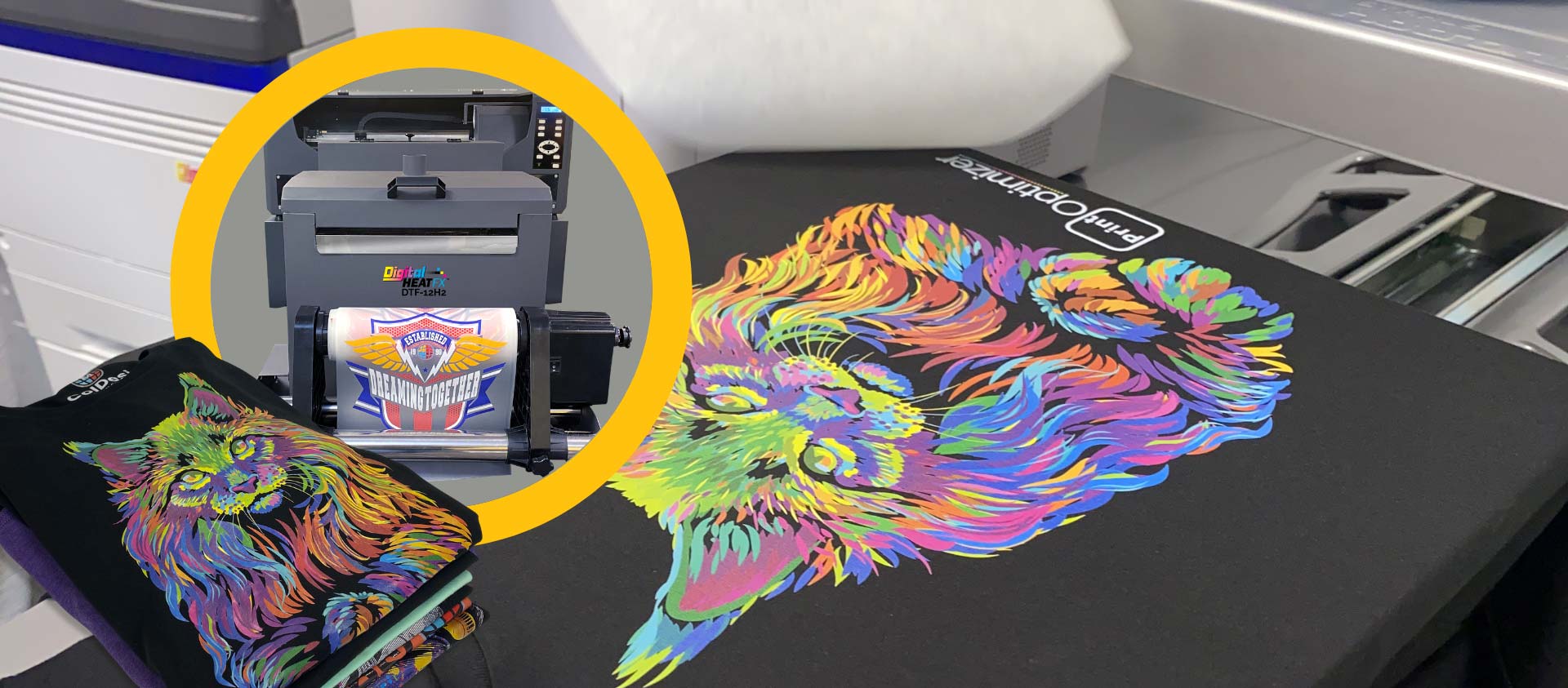DTF Printing Mastery: Boost Your Textile Creations with Direct-to-Film Modern Technology
Wiki Article
Ultimate Guide to DTF Printing Strategies for Sensational Textile Styles
Beginning on the trip of understanding DTF printing methods can open up a globe of possibilities for producing visually exciting fabric designs. In this overview, we will check out the detailed information of DTF printing, from realizing the fundamental fundamentals to unraveling progressed shade strategies that can raise your layouts to brand-new heights.Recognizing DTF Printing Fundamentals
DTF printing, a process that entails transferring layouts from a special movie to fabrics using warmth and pressure, creates the foundation of textile printing methods. The first action in DTF printing involves developing or selecting a layout that will be published onto the textile.The final outcome is a magnificent, long-lasting textile style that is washable, versatile, and immune to fading. Generally, recognizing the essentials of DTF printing is important for grasping this modern-day fabric printing strategy.
Picking the Right Fabric Materials
Having developed the foundational concepts of DTF printing techniques for fabric designs, the next vital consideration exists in selecting the proper textile products to complement this ingenious process properly. In addition, the stretchability of these materials can suit the heat transfer procedure entailed in DTF printing without distorting the design. By choosing the right fabric materials, developers can maximize the possibility of DTF printing to produce spectacular and resilient fabric designs.
Understanding the Printing Refine
To master DTF printing strategies for textile layouts, mastering the printing procedure is important for attaining consistent and high-quality results. The printing process in DTF includes numerous key actions that require accuracy and focus to detail. Preparing the artwork for printing is vital. This consists of making certain the style is correctly sized and placed for the textile. Next, the layout is published onto an unique DTF film utilizing a suitable printer with the appropriate settings to achieve ideal color vibrancy and clearness (DTF Printing). Once the design is published, it is after that transferred onto the material utilizing a heat press device. The temperature, stress, and period of warm application need investigate this site to be meticulously regulated to make certain correct attachment of the style to the textile. Furthermore, mastering the peeling procedure after warmth pushing is important to avoid any type of damage to the design or fabric. By refining each of these action in the printing procedure, developers can constantly create durable and magnificent fabric designs with DTF printing strategies.
Enhancing Styles With Shade Methods

Furthermore, explore shade slopes can bring a feeling of motion and fluidness to the design. By mixing colors flawlessly, a gradient result can be achieved, including a dynamic and contemporary touch to the textile design. Additionally, using color blocking techniques can create bold and striking visuals by juxtaposing different strong colors in unique sections of the design.
Additionally, integrating metallic or neon shades can supply a special and distinctive element to the fabric style, making it stick out and emanate a feeling of vibrancy. When tactically used, these color methods can raise the general visual article source charm of fabric styles, making them a lot more remarkable and captivating.
Troubleshooting Common DTF Printing Issues
After exploring different color methods to boost textile layouts, it is necessary to address usual DTF printing problems that might occur during the manufacturing process. In addition, concerns with web image quality and intensity can take place due to low-resolution images or incorrect printing techniques. By being conscious of these common troubles and implementing the required troubleshooting actions, you can improve the general top quality of your DTF published fabric designs.Verdict
In verdict, mastering DTF printing methods is important for developing spectacular fabric designs. With technique and attention to information, one can develop special and gorgeous fabric designs utilizing DTF printing strategies. Styles))))DTF printing, a procedure that includes moving designs from an unique film to fabrics using warm and pressure, develops the structure of textile printing methods.Having actually established the foundational concepts of DTF printing techniques for textile styles, the following important consideration exists in selecting the proper fabric materials to complement this ingenious procedure efficiently. By selecting the appropriate textile products, designers can optimize the possibility of DTF printing to create sensational and lasting fabric styles.
To succeed in DTF printing techniques for textile designs, understanding the printing process is crucial for accomplishing regular and premium outcomes. DTF Printing. By developing each of these actions in the printing procedure, designers can constantly generate resilient and spectacular fabric styles with DTF printing methods
Report this wiki page